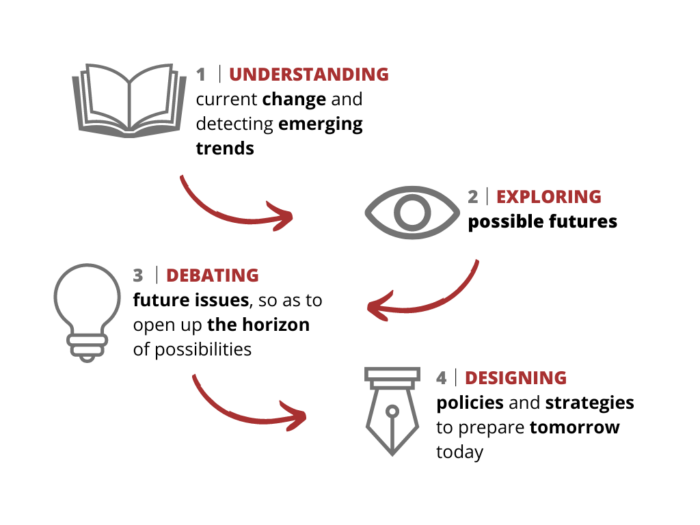As a cradle of civilizations, the Mediterranean region has always been a source of fascination and played a major role in Europe commercially, culturally and geopolitically. Moreover, the countries of the southern and eastern rims of the Mediterranean are today seeing profound social and political upheavals that are likely also to affect the northern rim, making their futures uncertain, to say the least. In such a context, it becomes essential to have solid foresight analyses of the region.
Long before the Arab revolutions of spring 2011 began, the European Commission had launched a wide-ranging foresight exercise on the Mediterranean region up to the year 2030, entitled EuroMed-2030. This was driven by a group of 20 international experts and submitted its findings in December 2010. Domenico Rossetti di Valdalbero, Perla Srour-Gandon and Spela Majcen present the main lessons to be gleaned from the exercise here. After reviewing the major trends in the region (in demographic, economic, cultural, scientific, agricultural and energy terms), our authors stress the principal tensions and uncertainties that are likely to influence the future of the Mediterranean zone (socio-economic inequalities, democratic and reforming aspirations, tensions between hostile states, divergent views of Euro-Mediterranean cooperation etc.). From this starting point, they present the four transitional scenarios identified by EuroMed-2030 — “Managing Conflict”, “Engaging in Win-Win Projects”, “Deeper Economic Integration” and “Towards a EuroMed Community” – as well as various flagship initiatives and more concrete recommendations that may well accompany them.
The Mediterranean Region to 2030: Challenges and Prospects in light of the EuroMed 2030 Foresight Study
Cet article fait partie de la revue Futuribles n° 378, oct. 2011


